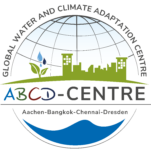The Asian Institute of Technology
an international English-speaking postgraduate institution.
Around 1,700 International Students
Smart communities for answers to global challenges
Internationally recognized institution
AIT functions as a diverse community that promotes a cosmopolitan way of living and learning. The primary objective of AIT within the evolving context is to cultivate exceptionally skilled and dedicated professionals who will assume pivotal roles in facilitating the sustainable advancement of the region and its integration into the worldwide economy. AIT has consistently maintained its leadership in addressing sustainable development and societal influence within the area, aligning with the United Nations' Sustainable Development Goals (SDGs). Over the past couple of years, AIT has further solidified its position, currently achieving a ranking of 101-200 in the global Impact Rankings. This recognition is a result of AIT's commitment to promoting SDGs through its teaching, community engagement, and operational practices.

AIT offers Masters Degrees (MBA, MEng, MSc), Executive Master Degree, Doctoral Degrees (DEng, DTescSc, PhD, DBA), Certificate Programs, and Non-degree continuing education courses for practicing professionals. Main tematic areas: Climate change, Smart comunities, Food, energy, and water, Infrastracture, Technology, policy, and society.
The Water Engineering and Management (WEM) program of the Asian Institute of Technology (AIT), under the Department of Civil and Infrastructure Engineering (CIE) in the School of Engineering and Technology (SET), focuses on understanding the complexity of water use and water resources management problems.
Water Engineering and Management (WEM)
The Water Engineering and Management unit provides education, training, and research opportunities to address complex challenges in securing water resources, protecting ecosystems, and managing water variability and uncertainties. Students gain expertise in various areas within water engineering and management to develop sustainable solutions and contribute to integrated water resources management at the river basin scale
